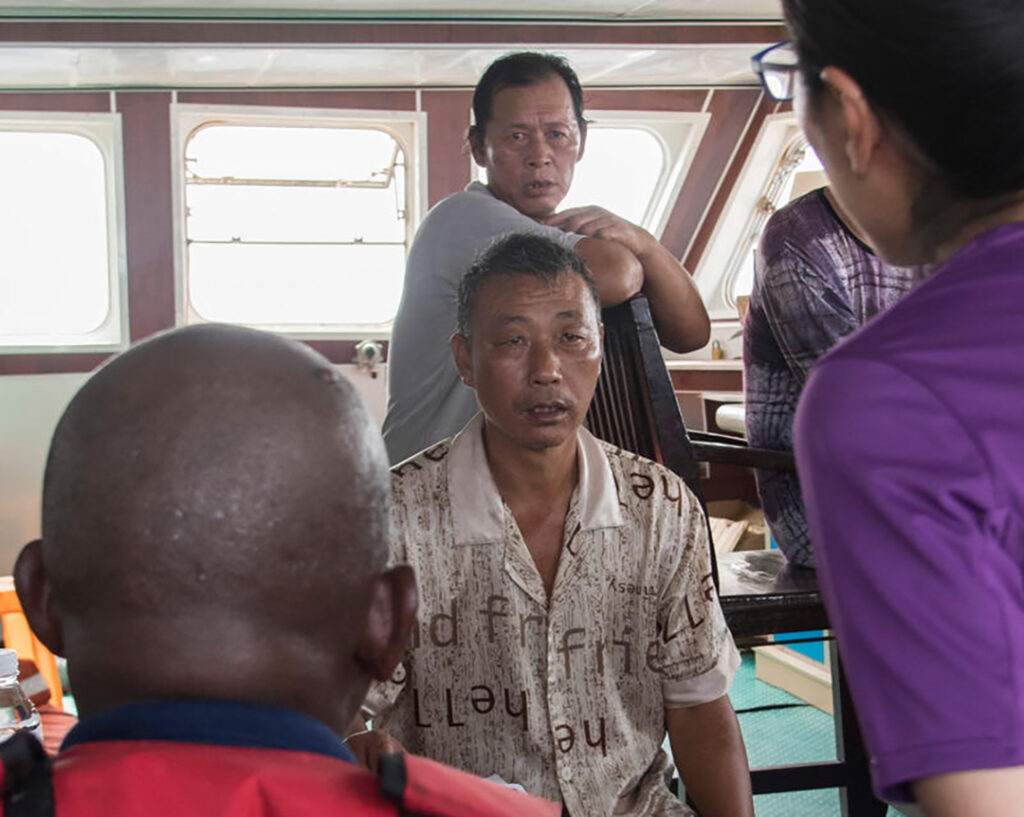ADF STAFF
Illegal, unreported and unregulated (IUU) fishing by foreign trawlers has robbed African nations of food and income for decades, but besides leading to increased piracy and other maritime crimes, experts also say IUU fishing also threatens Africa’s “blue economy.”
The World Bank defines blue economy as “the sustainable use of ocean resources for economic growth, improved livelihoods and jobs, and ocean ecosystem health.”
The African Union characterizes the blue economy as the “new frontier of the African Renaissance,” as 90% of the region’s trade is conducted by sea. Yet many African nations struggle to earn revenue from their fisheries, tourism, aquaculture, transport, ports and oil drilling.
“Given the high stakes, it is essential that Africa’s blue economy policies and goals be expanded,” Donald Sparks, editor of The Blue Economy in Sub-Saharan Africa Working for a Sustainable Future, wrote for the website African Arguments. “Just as sustainable development green initiatives show promise, so too could blue economy projects and activities. It is imperative that all states adopt strategies to achieve enhanced wealth and wellbeing from the oceans in the coming years.”
Throughout West Africa, the proliferation of more than 50 Chinese-owned fishmeal factories, fueled largely by illegally caught fish, has polluted popular tourist destinations, driving away tourists and depriving the countries of revenue. Overfishing leaves artisanal fishermen with empty nets, significantly reduces income and food, and devastates marine resources necessary to replenish fish stocks.
“The Chinese fleet has been taking the profits of the fisheries for 30 years and the impact on fish stocks has been terrible,” Stephen Akester, an advisor to Sierra Leone’s Ministry of Fisheries and Marine Resources, told the International Forum For Rights And Security, which in March published a report detailing the many ways China’s distant-water fishing fleet depletes marine resources around the globe.
“The resources are disappearing, fishermen are suffering, and families are starving,” Akester added. “Many have just one meal a day.”
According to the Ocean Science Foundation, African nations lose an estimated $10 billion annually to illegal trawlers, the majority of which are Chinese. China commands the world’s largest distant-water fishing fleet and, according to the IUU Fishing Index, is the world’s worst IUU offender.
In Senegal, 90% of the country’s fisheries now are fully fished or facing collapse, according to the United Nations. Senegal’s fish mostly are caught by large foreign trawlers and exported to Asia and Europe, often as fishmeal or fish oil produced at Chinese-owned factories. That means the country earns little from fish caught in its waters.
In Ghana, illicit fishing threatens to destroy small pelagic fish populations, such as sardinella, which has dropped 80% in the past two decades, the Environmental Justice Foundation reported. Officials are trying to fight illegal fishing and other sea crimes while boosting the country’s blue economy through the new National Integrated Maritime Strategy.
The strategy was developed with support from the Centre for Maritime Law and Security Africa and the United Nations Office on Drugs and Crime, with funding from Denmark. It aims to strengthen maritime governance and security, protect marine and coastal environments, and develop regional and international cooperation on maritime issues.
Experts say political will is required to enhance maritime security and boost the continent’s blue economy.
Artisanal fishermen in Sierra Leone, where illegal fishing costs the country about $29 million a year, long have bemoaned the government’s lack of commitment to end IUU fishing.
Sea crimes in Sierra Leone primarily are committed by large industrial trawlers, about 75% of which are connected to China, according to estimates by China Dialogue Ocean. In 2016, the European Union issued Sierra Leone a yellow card after concluding that the country’s level of development and engagement against IUU fishing was inadequate.
In 2021, Sierra Leonean officials signed a controversial deal with China to develop an industrial fishing harbor on 100 hectares of beach and protected rainforests. Conservationists say no one conducted social or environmental impact assessments on the project.
Locals worry the harbor will draw even more foreign industrial trawlers, which will take their fish and income and drive away tourists.

